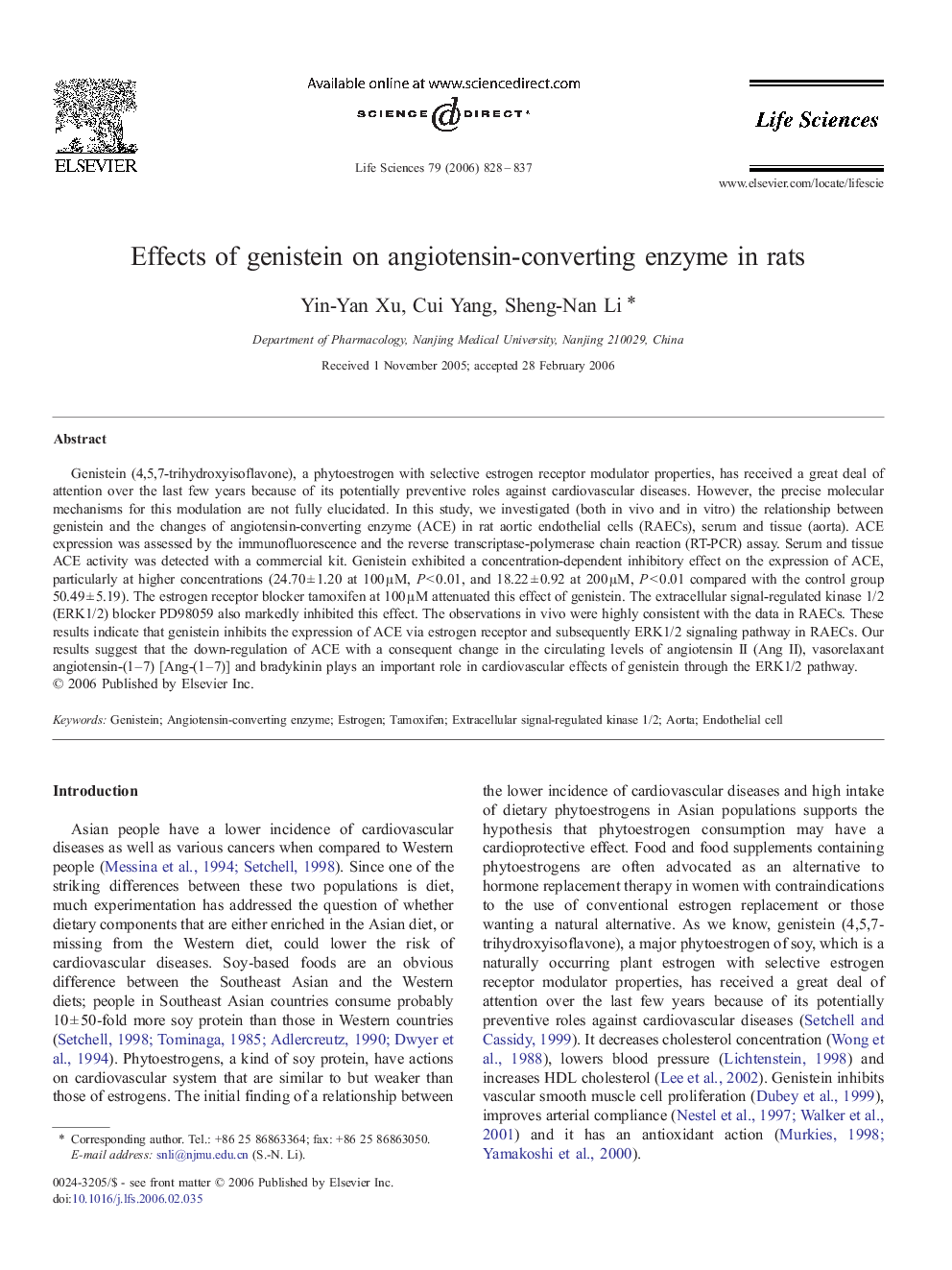| Article ID | Journal | Published Year | Pages | File Type |
|---|---|---|---|---|
| 2554881 | Life Sciences | 2006 | 10 Pages |
Genistein (4,5,7-trihydroxyisoflavone), a phytoestrogen with selective estrogen receptor modulator properties, has received a great deal of attention over the last few years because of its potentially preventive roles against cardiovascular diseases. However, the precise molecular mechanisms for this modulation are not fully elucidated. In this study, we investigated (both in vivo and in vitro) the relationship between genistein and the changes of angiotensin-converting enzyme (ACE) in rat aortic endothelial cells (RAECs), serum and tissue (aorta). ACE expression was assessed by the immunofluorescence and the reverse transcriptase-polymerase chain reaction (RT-PCR) assay. Serum and tissue ACE activity was detected with a commercial kit. Genistein exhibited a concentration-dependent inhibitory effect on the expression of ACE, particularly at higher concentrations (24.70 ± 1.20 at 100 μM, P < 0.01, and 18.22 ± 0.92 at 200 μM, P < 0.01 compared with the control group 50.49 ± 5.19). The estrogen receptor blocker tamoxifen at 100 μM attenuated this effect of genistein. The extracellular signal-regulated kinase 1/2 (ERK1/2) blocker PD98059 also markedly inhibited this effect. The observations in vivo were highly consistent with the data in RAECs. These results indicate that genistein inhibits the expression of ACE via estrogen receptor and subsequently ERK1/2 signaling pathway in RAECs. Our results suggest that the down-regulation of ACE with a consequent change in the circulating levels of angiotensin II (Ang II), vasorelaxant angiotensin-(1–7) [Ang-(1–7)] and bradykinin plays an important role in cardiovascular effects of genistein through the ERK1/2 pathway.
